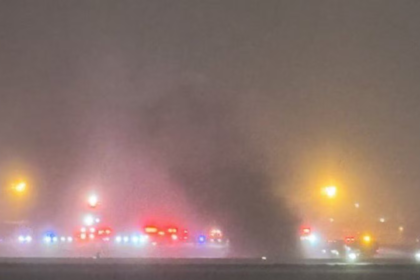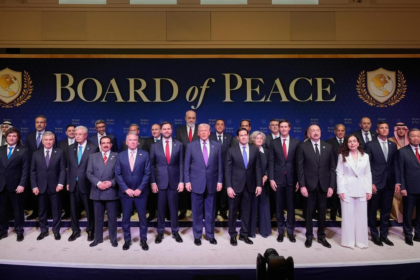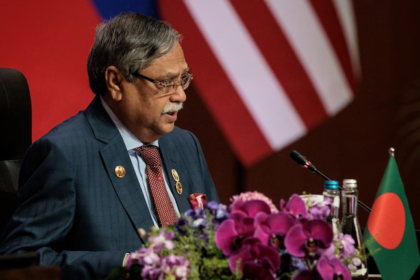Fury in Quebec as Indian Students Protest Mandatory French Exam for Degree
Fury in Quebec as Indian Students Protest Mandatory French Exams Amid Bill 96 Implementation
Montreal/New Delhi –
A wave of unrest has swept across Quebec, Canada, as Indian students have publicly protested the province’s recent enforcement of mandatory French language exams as a prerequisite for obtaining their degrees and post-graduation work permits (PGWPs). The protests have triggered a sharp backlash from local Quebecers who view the movement as a rejection of the province’s French linguistic heritage.
The controversy centers around Bill 96, a language law enacted in 2022 that strengthens the role of French in Quebec. It requires international students, among others, to demonstrate proficiency in the French language to be eligible for academic certification and work opportunities in the province.
Protests Go Viral
The protest gained widespread attention after a video circulated online, posted by the Instagram page ‘French With Fairness.’ In the footage, a group of Indian students with blurred faces voiced their grievances against being compelled to pass a French exam in order to graduate. The students emphasized that their objection is not to learning French, but rather to the lack of support, clarity, and fairness in the implementation of the requirement.
“We are being forced. Students from across our college are speaking out — not against the French language, but against the pressure, fear, and uncertainty caused by Bill 96,” the students said in their statement. “We are not refusing to learn French. We are demanding time, support, and most importantly… fairness.”
Quebec’s French Identity and Bill 96
Canada is officially bilingual, with both English and French recognized as official languages. However, in Quebec—the only Canadian province with French as the sole official language—the preservation of French is a deeply entrenched cultural and political priority.
Bill 96 amends Quebec’s Charter of the French Language to mandate the use of French in schools, public institutions, and workplaces. For educational institutions, this means a growing number of international students are being required to pass French proficiency tests, even if their programs are taught primarily in English.
The bill has sparked debate since its passage, with supporters arguing it protects the cultural identity of Quebec and critics claiming it imposes unreasonable expectations on newcomers.
Indian Students Caught in a Legal and Cultural Crossfire
Indian students form one of the largest groups of international students in Canada. Many arrive in Quebec expecting to complete programs primarily in English, particularly at colleges in Montreal. However, under the new regulations, failing to pass a French exam could result in their degrees being withheld and their future prospects—especially their eligibility for a post-graduation work permit—being compromised.
The protesting students pointed out that the rules do not appear to be enforced consistently across institutions. While they face language test requirements, students from universities such as McGill and Concordia in Montreal have not reported similar restrictions, according to protestors.
Their demands center around transparency, equal treatment, and adequate time to adapt. “We’re here to study our programs. But now we’re told: No French, No Degree,” one student said in the video.
Local Backlash Intensifies
The video quickly drew a wave of critical comments online, many from Quebec residents who perceived the students’ protest as a refusal to assimilate into the local culture.
“They literally picked Montreal, which is a part of the autonomous province of Quebec where French is the official language. If the students can’t even communicate in the official language, what’s the point of giving them PGWP?” one user commented.
Others expressed more frustration: “Go back to India if you don’t want to learn French. This is the language & culture here, nobody owes you compromise because you don’t want to put the work in to learn the language.”
The backlash reflects a growing cultural rift, where international students seeking educational and professional opportunities are clashing with Quebec’s efforts to safeguard its language and traditions.
Wider Implications for International Education in Canada
The situation in Quebec may have broader implications for Canada’s international education sector. With over 800,000 international students currently studying in Canada, any perceived instability or inconsistency in policies—especially concerning language or visa status—can influence prospective students’ decisions about where to study.
Education experts have called for greater communication and support mechanisms to help international students navigate the evolving regulatory environment, particularly in linguistically unique regions like Quebec.
A Call for Dialogue
While the protests have triggered strong reactions, they also highlight the urgent need for constructive dialogue between students, educational institutions, and the provincial government. Advocates are urging Quebec authorities to offer transitional support and language training, rather than penalize students who are mid-way through their academic journeys.
As of now, there has been no formal government response to the students’ protest. However, with tensions escalating and international attention growing, stakeholders may soon be compelled to re-examine the implementation of Bill 96 in the context of global education and immigrant integration.
Conclusion
The protests by Indian students in Quebec serve as a microcosm of the broader tensions between cultural preservation and global integration. While Quebec’s desire to protect its linguistic heritage is valid, so too are the concerns of international students seeking fair, transparent, and supportive academic environments.
As the situation evolves, both sides will need to find a path forward that honors Quebec’s identity while also embracing the diversity and promise that international students bring to Canadian society.
Also Read : 3 Indians Missing in Iran: India Urges Tehran to Trace and Ensure Their Safety








